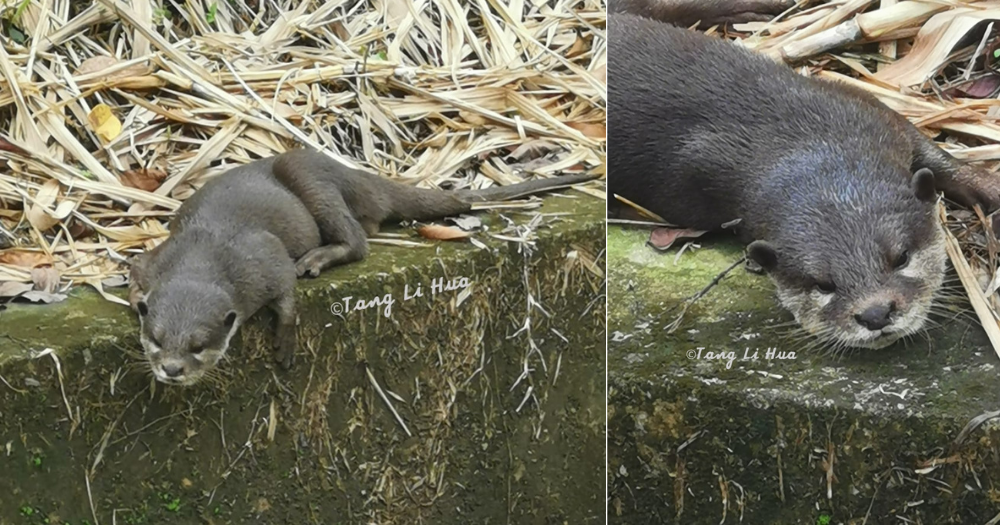While Singapore is home to two species of otters — the smooth-coated otter and the small-clawed otter — only the former is popularly known and spotted across the island.
The latter is a smaller species of otter that is found in the wild on offshore islands, such as Pulau Ubin and Pulau Tekong.
According to the National Parks Board (NParks), there have been no records of the species on the mainland in the past 20 years.
Lone small-clawed otter spotted in western S'pore
One nature enthusiast Tang Li Hua was taking a stroll in the western part of Singapore when she encountered a small otter on Sep. 26, 2020.
Tang told Mothership that the otter seemed smaller than the smooth-coated otter.
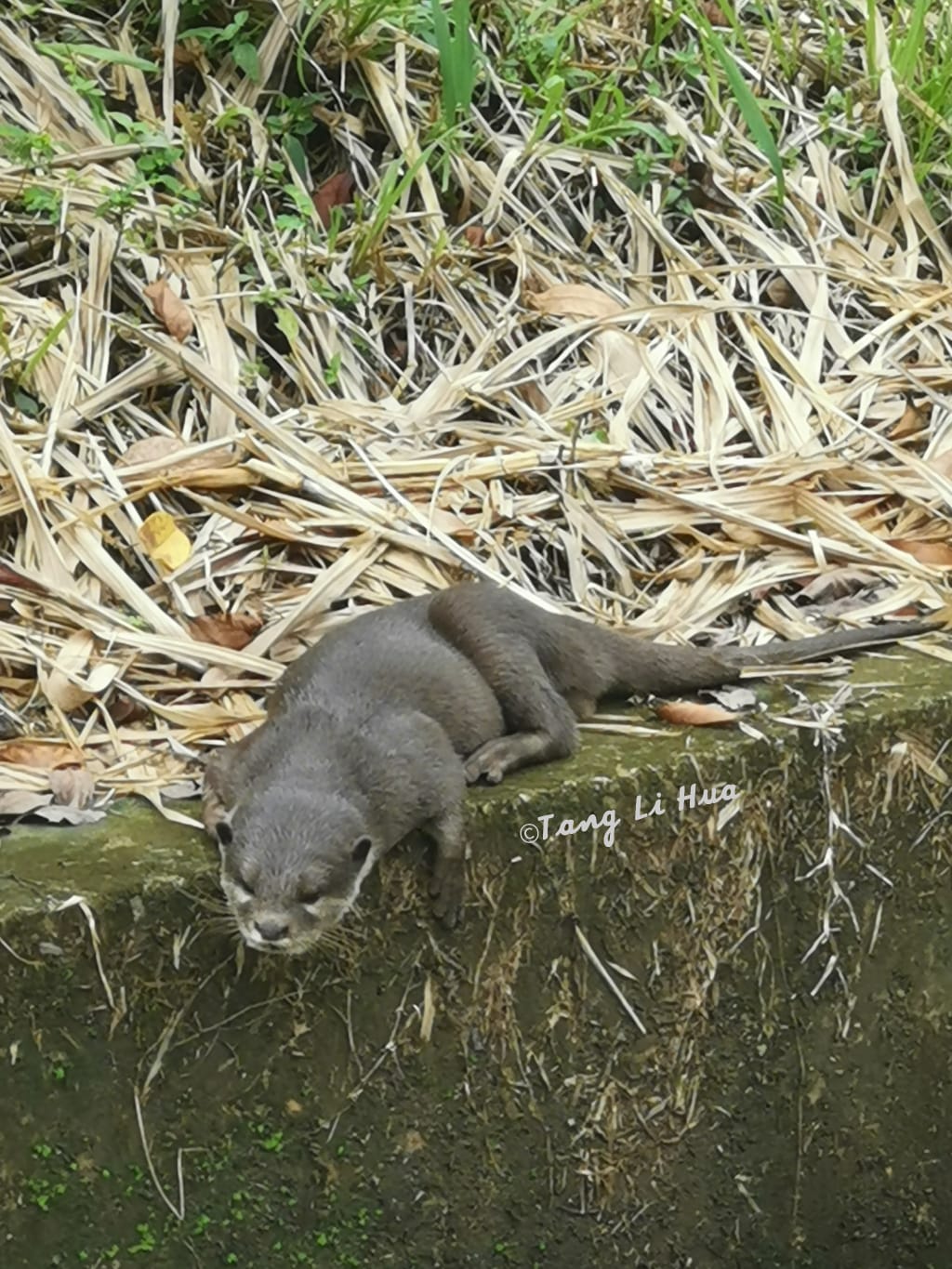 Photo courtesy of Tang Li Hua.
Photo courtesy of Tang Li Hua.
According to Tang, the otter was near a canal and was spotted resting quietly.
Besides being smaller in size, the otter has a flatter and shorter snout which is one feature that differentiates this species from the smooth-coated otters.
Here are some close-up shots taken by Tang:
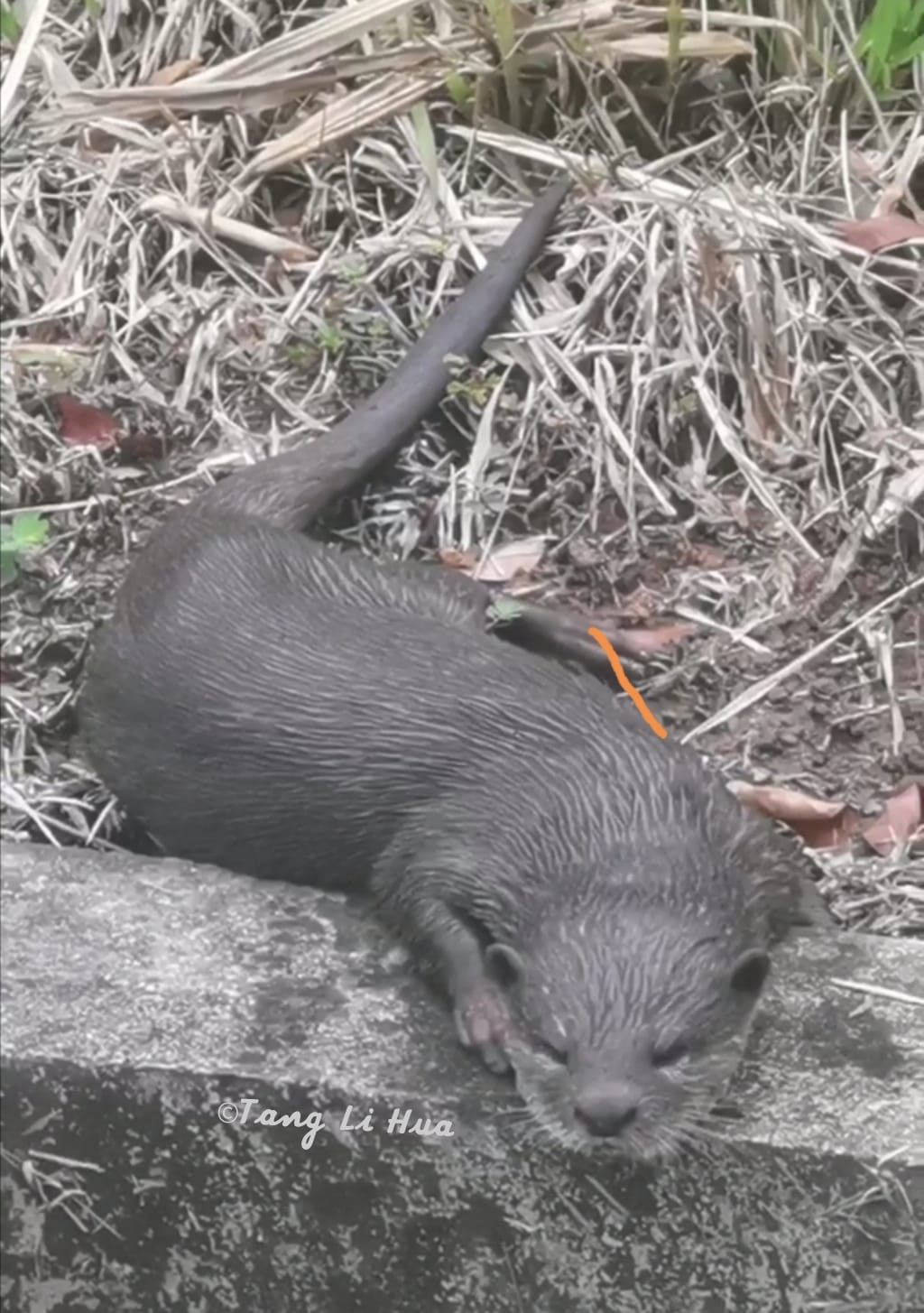 Photo courtesy of Tang Li Hua.
Photo courtesy of Tang Li Hua.
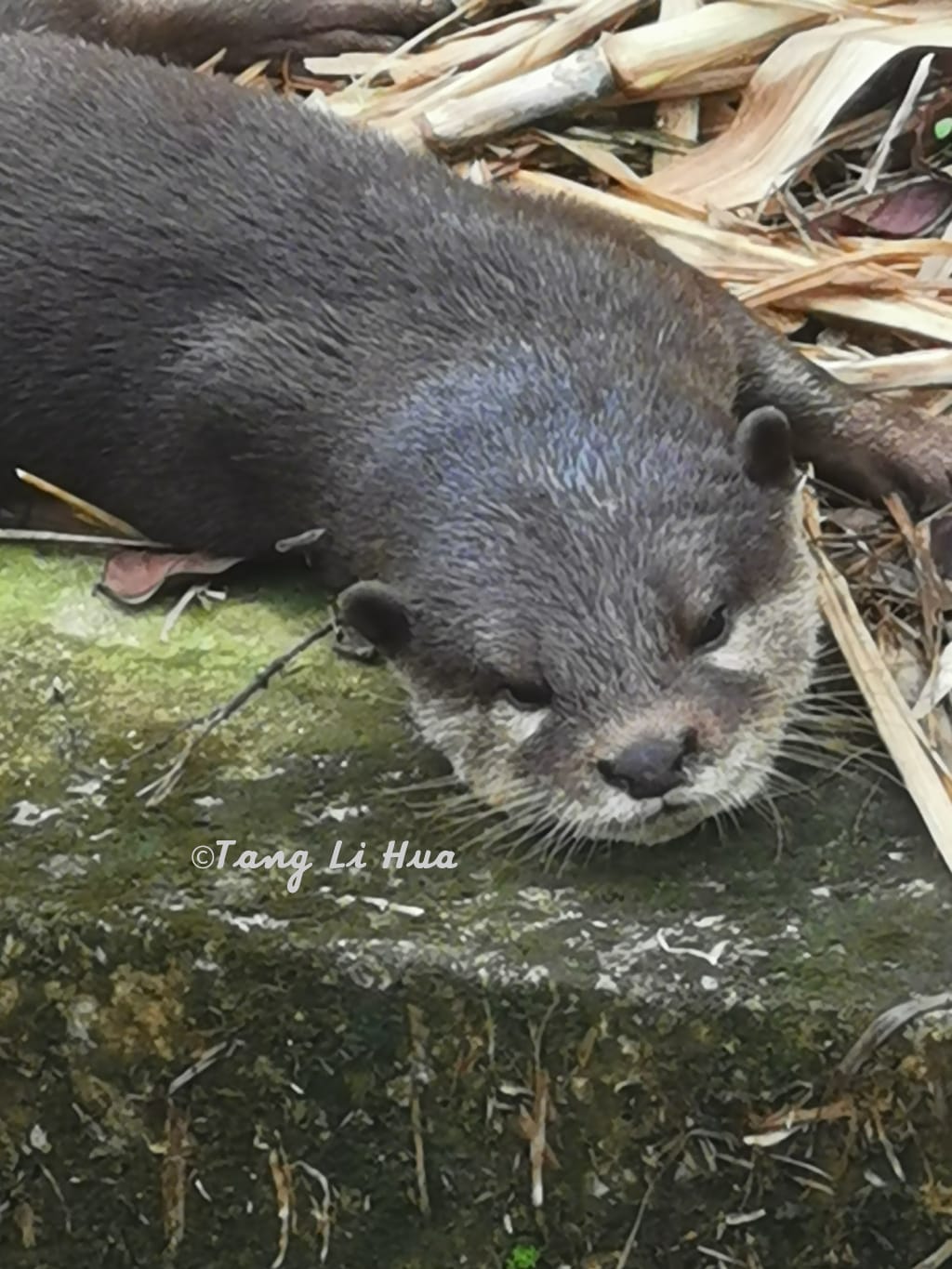 Photo courtesy of Tang Li Hua.
Photo courtesy of Tang Li Hua.
The Asian small-clawed otters are about half the size of the smooth-coated otters, and are the world's smallest species of otters, according to Wiki.nus.
The species is also commonly spotted in groups of two to 15 individuals.
They mainly consume crabs, molluscs, amphibians and fish.
Speculated to be an abandoned illegal pet
Sightings of lone small-clawed otters have surfaced a few times in the past three decades, according to Senior Lecturer at the National University of Singapore's Department of Biological Sciences, Sivasothi N.
Sivasothi is part of the Otter Working Group and is also known as the "Otterman" as he has been studying otters in Singapore since the 1990s.
While it is possible for a wild transient individual to be looking for a new family group, this has not been observed in Singapore for the small-clawed otters, Sivasothi told Mothership.
Therefore, it is "unusual" to see a wild small-clawed otter roaming on its own.
"From the reports of friendly behaviour, the possibility of an escaped, illegal pet did cross my mind," he said.
Sivasothi added that the Asian small-clawed otters are "severely threatened" due to the illegal otter trade in Southeast Asia.
"While Singapore laws are stringent, Acres who monitors activity has reported some indications in the past. The illegal wildlife trade is very active in our region of Southeast Asia, and very much so online."
Acres deputy chief executive Kalai Vannan confirmed with Mothership that the individual is an Asian small-clawed otter.
He also thinks that the lone individual could have been a released illegal pet.
Kalai added that "it has been described as being very skittish and shy but constantly spotted in urban areas".
Two other Asian small-clawed otters found stranded in Singapore last year
Acres also told Mothership that they had received two separate small-clawed otter-related cases in 2019.
Kalai revealed that in one of the cases, the otter was paralysed and had to be euthanised.
The second small-clawed otter was rescued by Acres after it ventured into private property and was stranded last September.
After a series of dietary and enclosure tests, Acres concluded that the animal was most likely a released pet. It was subsequently handed over to the Wildlife Reserves Singapore.
Here's a photo of the otter which Acres believes could have been an abandoned illegal pet:
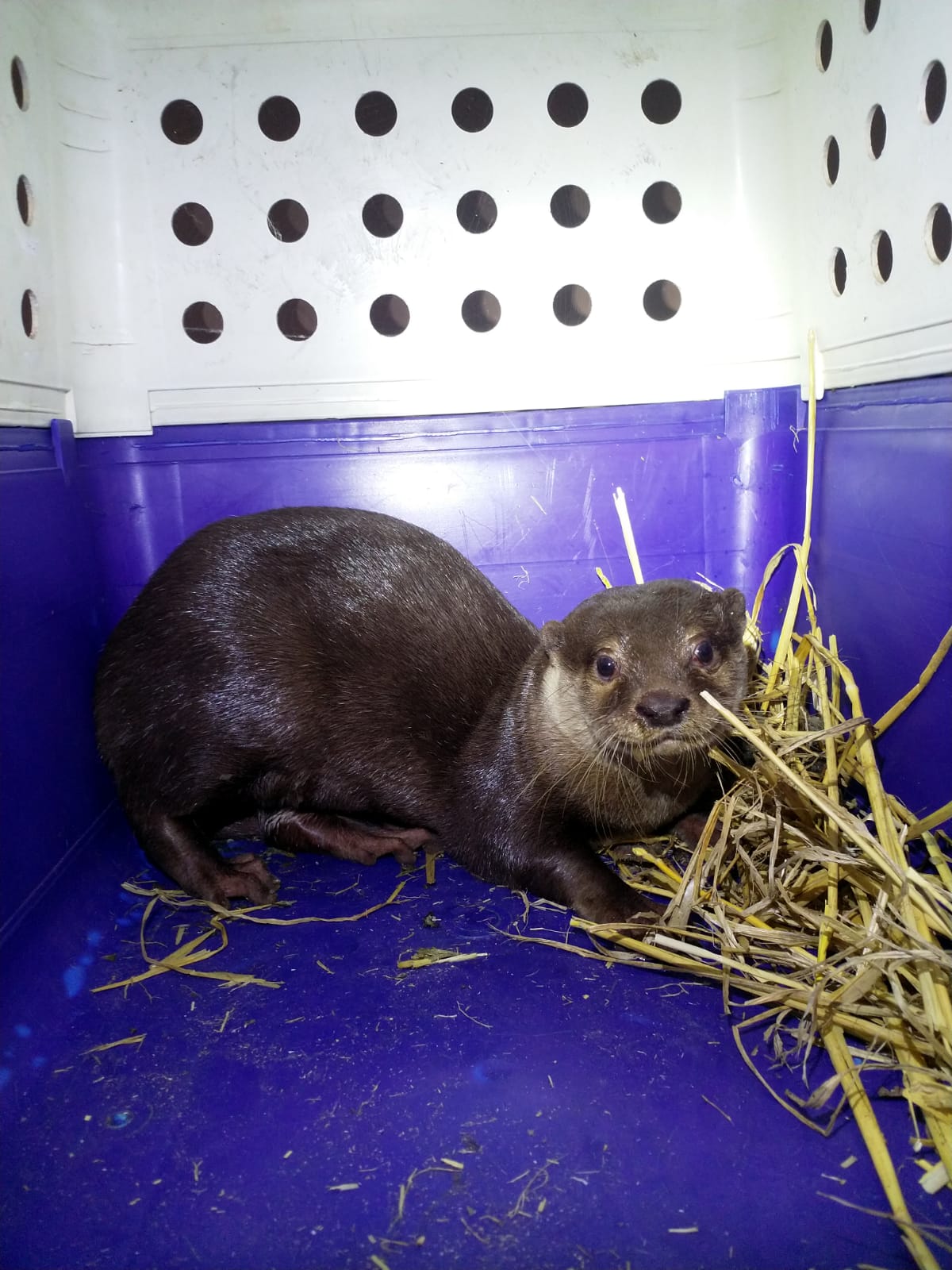 Photo by Acres
Photo by Acres
NParks: No illegal imports of otters detected
In response to Mothership's queries, NParks said that they are aware of three incidences involving Asian small-clawed otters on mainland Singapore over the past two years, including the latest one sighted by Tang last month.
The Group Director of Wildlife Management at NParks, Adrian Loo said that NParks is uncertain of the origins of these otters.
However, they have not detected any illegally imported otters or attempts to smuggle otters into Singapore.
Loo also reminded members of the public that under the Wildlife Act, otters are protected wildlife species.
Under the Wildlife Act, the killing, taking, trapping, or keeping of otters in any place is prohibited.
Offenders could face a fine of up to S$50,000 or up to two years' jail, or both.
The release of any otter in any place is also prohibited and offenders could face a fine of up to S$5000.
Anyone who is guilty of importing otters, without the Director-General’s approval, could face a fine of up to S$10,000 or up to two years' jail, or both.
If you spot any occurrences of illegal wildlife trade, or ownership of endangered or wild species and their parts, you may contact NParks using the online feedback form or call 1800-476-1600 or Acres at 9783 7782.
We deliver more stories to you on LinkedIn
Top images via Tang Li Hua
If you like what you read, follow us on Facebook, Instagram, Twitter and Telegram to get the latest updates.
